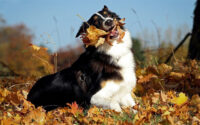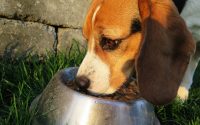Can dos eat cheese
For many dog owners, sharing a snack with their furry companion is a common occurrence. Cheese is a popular choice as it is savory and delicious. However, before you offer your dog a bite of cheese, it’s important to understand the potential risks and benefits associated with feeding cheese to dogs. In this article, we will explore whether dogs can safely eat cheese, the risks involved, the benefits it can offer, best practices for feeding cheese to dogs, types of cheese safe for consumption, and the importance of consulting a veterinarian before introducing cheese into your dog’s diet.
Can Dogs Safely Eat Cheese?
Table of Contents
Many dogs can safely enjoy cheese in moderation as a treat. Cheese is a good source of protein, calcium, and essential fatty acids, which can be beneficial for your dog’s overall health. However, some dogs may be lactose intolerant or have dairy allergies, making cheese a less suitable option for them. It’s important to monitor your dog for any adverse reactions after feeding them cheese for the first time.
Potential Risks of Feeding Cheese to Dogs
While cheese can offer nutritional benefits, there are also potential risks associated with feeding it to dogs. Some dogs may have difficulty digesting lactose, leading to gastrointestinal issues such as diarrhea, bloating, and gas. Additionally, cheese is high in fat and calories, which can contribute to obesity and other health issues if consumed in excess. Certain types of cheese, such as those high in sodium or with added ingredients like garlic or onions, can be toxic to dogs.
Benefits of Cheese for Canine Health
In moderation, cheese can provide several health benefits for dogs. It is a good source of protein, which is essential for muscle growth and repair. Cheese also contains calcium, which is important for bone health and development. The essential fatty acids found in cheese can help support your dog’s skin and coat health. Additionally, the taste and texture of cheese can make it a great training treat for dogs.

Best Practices for Feeding Cheese to Dogs
When feeding cheese to your dog, it’s important to do so in moderation. Too much cheese can lead to digestive issues and weight gain. Choose low-fat and low-sodium options, and avoid cheeses with added ingredients that may be harmful to dogs. Cheese should be given as an occasional treat rather than a regular part of your dog’s diet. Be mindful of your dog’s overall calorie intake and adjust their meals accordingly if you plan on giving them cheese.
Types of Cheese Safe for Dogs to Consume
Not all cheeses are created equal when it comes to feeding them to dogs. Some types of cheese are safer and more suitable for canine consumption. Cottage cheese, mozzarella, and cheddar are generally well-tolerated by dogs and can be given in small amounts as a treat. It’s best to avoid cheeses that are high in sodium, such as blue cheese or feta, and those that contain added ingredients like herbs or spices.
Consulting a Veterinarian Before Feeding Cheese
Before introducing cheese into your dog’s diet, it’s always a good idea to consult with your veterinarian. They can provide guidance on whether cheese is a suitable option for your dog based on their individual health needs and dietary restrictions. Your veterinarian can also recommend portion sizes and monitor your dog for any adverse reactions after consuming cheese. It’s better to be safe than sorry when it comes to your dog’s health and well-being.
Comparison Table: Types of Cheese Safe for Dogs
| Type of Cheese | Benefits | Risks |
|---|---|---|
| Cottage Cheese | High in protein and calcium | Low-fat option |
| Mozzarella | Easily digestible | Low in sodium |
| Cheddar | Rich in essential fatty acids | Moderate fat content |
In conclusion, cheese can be a safe and tasty treat for many dogs when given in moderation and with caution. Understanding the potential risks and benefits of feeding cheese to dogs is essential for ensuring your furry friend’s well-being. By following best practices, choosing the right types of cheese, and consulting with your veterinarian, you can safely incorporate cheese into your dog’s diet as an occasional indulgence. Remember, your dog’s health should always come first when it comes to making dietary decisions.




“Avoiding high sodium cheese seems crucial, glad I read this.”
I didn’t know some cheeses could be bad for dogs. This is helpful!
Interesting that some dogs are lactose intolerant. Didn’t realize that!
Good to know mozzarella is safe for dogs. My pup loves it!
My dog has had gas after cheese, maybe it’s lactose intolerance.
I will check with my vet before giving cheese to my dog.
Cottage cheese sounds like a good option, I’ll try that.
I never knew cheddar could be okay in moderation. Helpful tips!
I’ll try cottage cheese as a treat for my dog now. Thanks for the info!
Wow, never thought cheese could have benefits for dogs too!